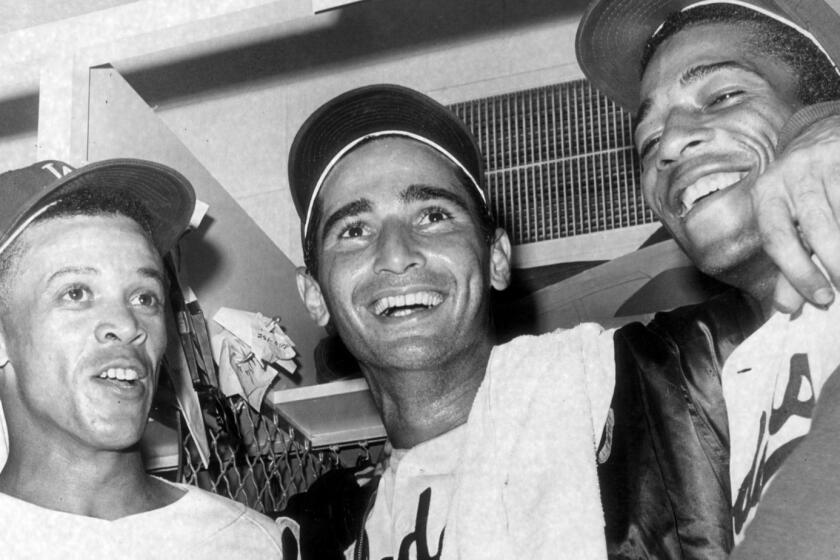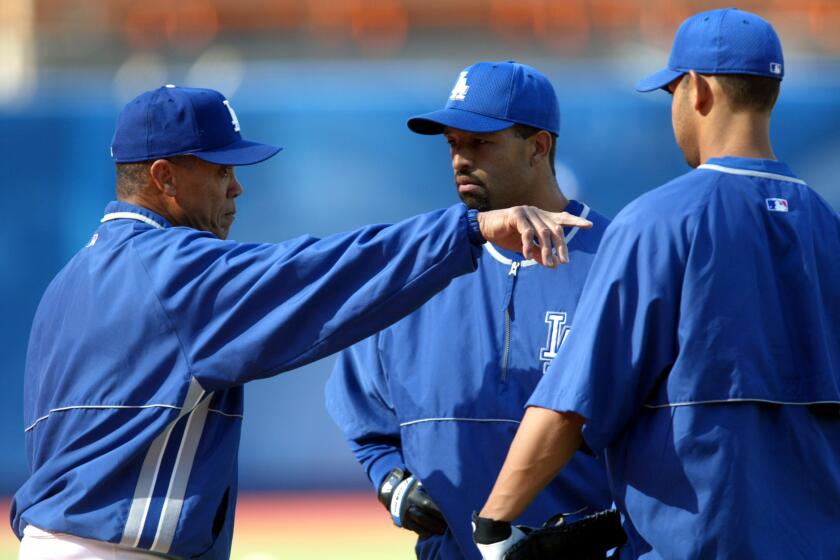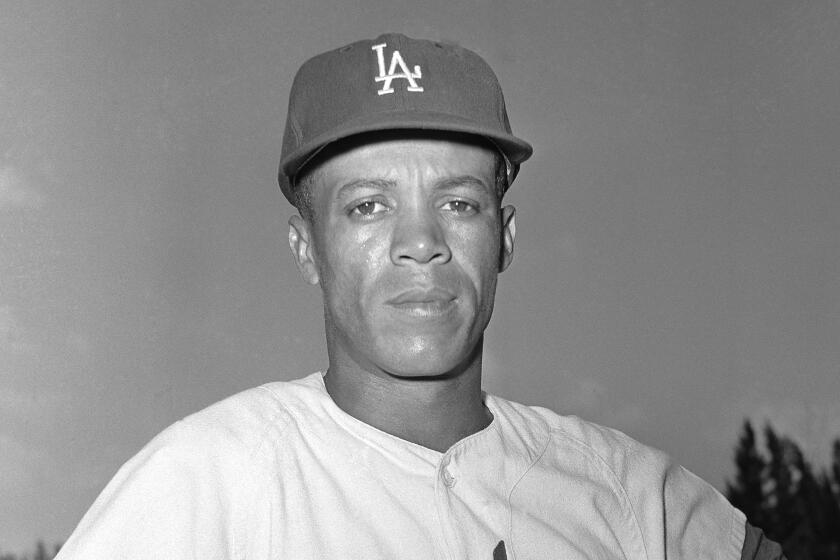Column: Maury Wills stole Dodger fans’ hearts. Changed the game. Not enough for Hall of Fame
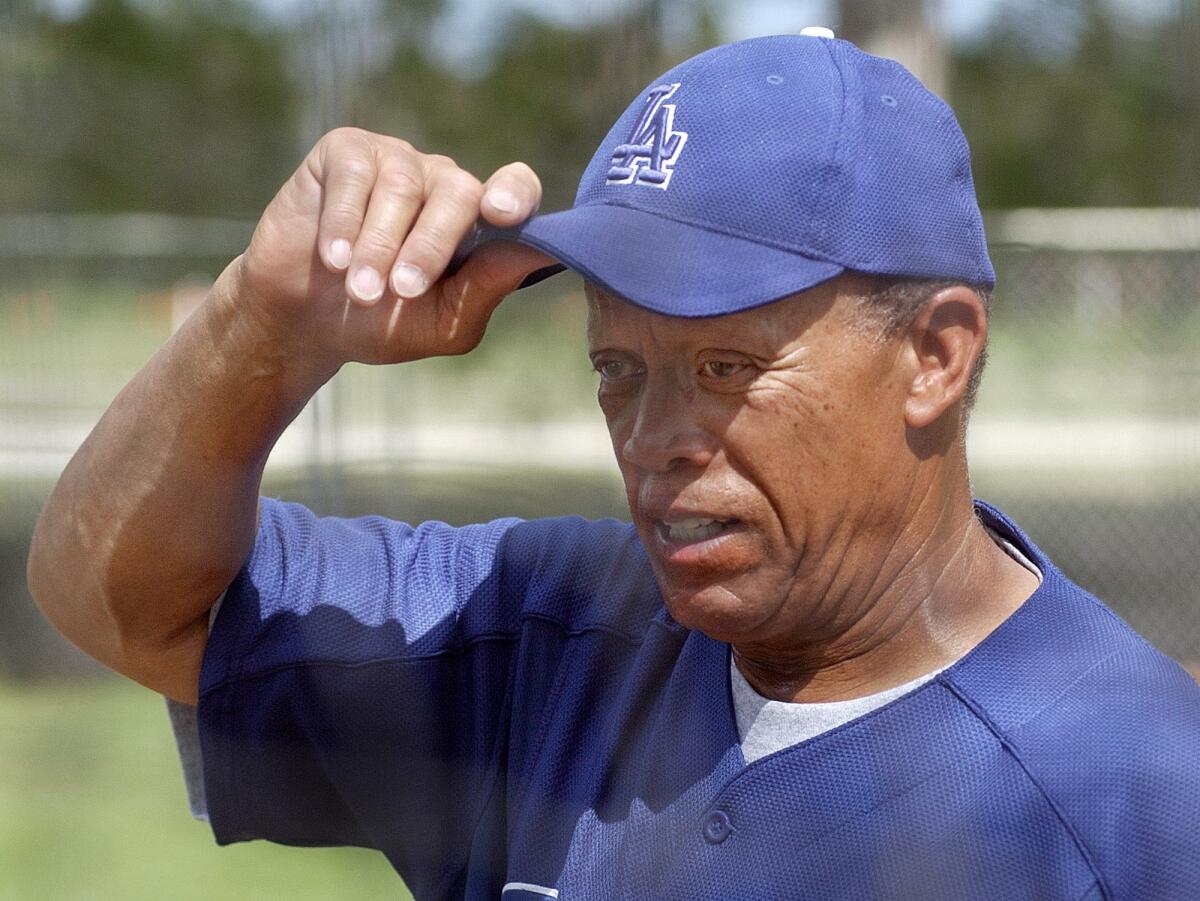
- Share via
He stole bases. He stole championships. He stole a city’s heart.
Yet, for all his accumulated riches, Maury Wills often lamented the one shiny object that was forever out of his reach.
He couldn’t steal his way into Cooperstown. The inventor of the modern stolen base unbelievably couldn’t sprint and slide into baseball’s Hall of Fame.
The baseball writers rejected him for 15 consecutive years. The veteran’s committee turned him down for 10 more years.
It hurt and haunted him until his death Monday at age 89.
“Why won’t they let me in the Hall of Fame?” he asked me once during a quiet moment at Dodger Stadium. “What more did I have to do?”
Wills was the Dodgers’ underappreciated legend, a three-time World Series champion and National League most valuable player who was traded because of off-field issues, a record-setting speedster who nonetheless couldn’t escape the lure of drugs and alcohol, a fabulous yet flawed hero.
Maury Wills, who revolutionized baseball with his ability to steal bases and was the MVP of the National League in 1962 for the Dodgers, has died.
In his later years he found redemption as a Dodgers advisor who is credited with saving Dave Roberts’ career and putting him on the path to becoming the team’s manager, yet by then it was too late for the national recognition he deserved.
“God, how I’ve come back,” Wills told me in 2002. “But what a price I’ve paid.”
He should be considered among baseball’s all-time greats. He literally changed the way the game was played. He joined the Dodgers in 1959 after spending nearly nine seasons in the minor leagues. Appearing out nowhere, he was suddenly everywhere.
He led the league in stolen bases in his first full Dodgers season in 1960, and again in 1961, then in 1962 he ran wild. That was the year he stole 104 bases, breaking a record that had stood for 47 years since Ty Cobb stole 96 in 1915. That was the year that changed everything.
Before Wills, baseball wasn’t about speed. Before Wills, baseball wasn’t about savvy. Wills showed that the stolen base could be as powerful as a clutch hit, as unnerving as a great catch, as eventually impactful as a home run.
“He brought speed to the game, and that speed fueled the Dodgers dynasty in the early 1960s,” Dodgers historian Mark Langill said. “Instead of the power of those final years in Brooklyn, this new Los Angeles team won with pitching, defense and speed … and Maury was that speed.”
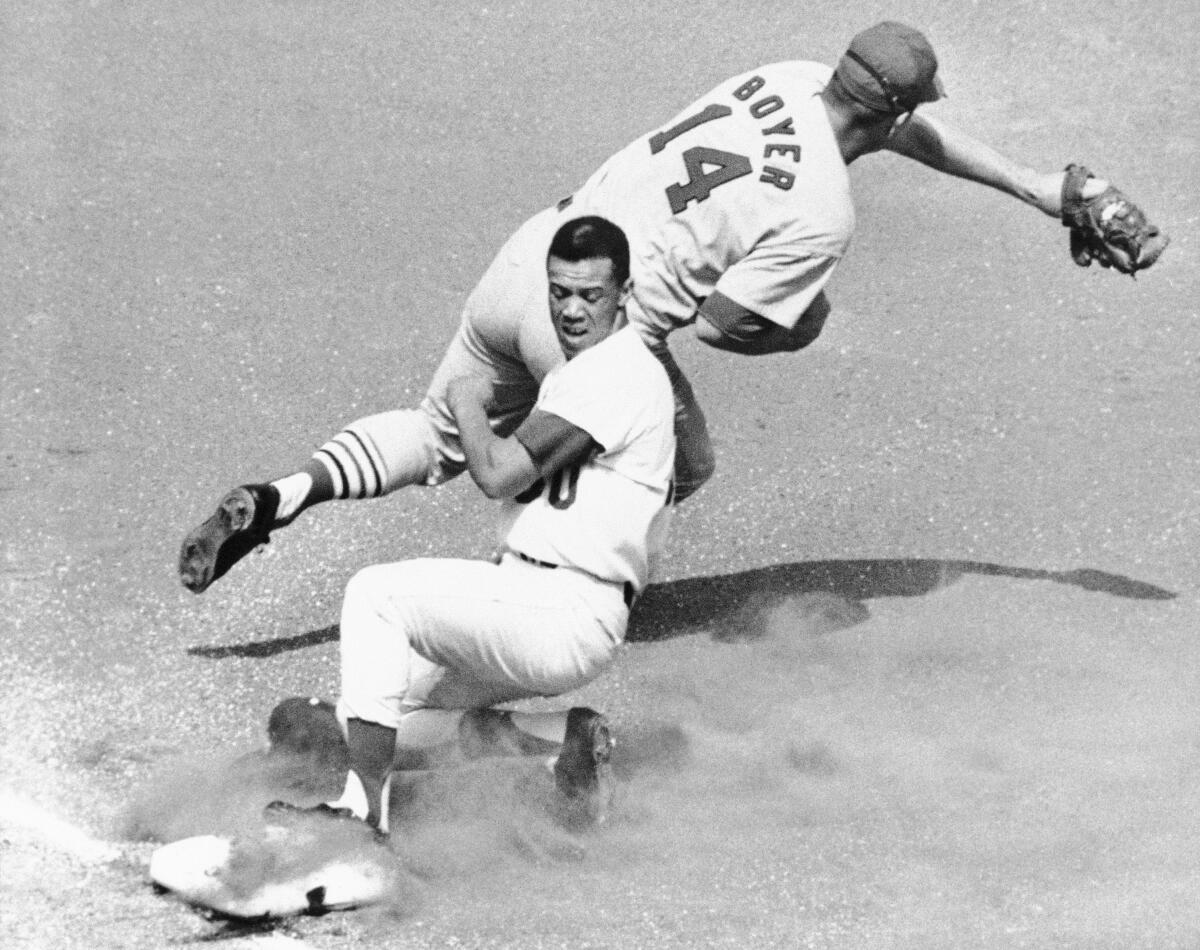
Wills stole so many bases, whenever he reached base in 1962, fans at newly opened Dodger Stadium would chant, “Go! Go! Go!”
Wills heard them, as he shared with The Times’ Houston Mitchell this summer in the transcript of a speech.
“On days when I was really hurting, hearing ‘Go! Go! Go, Maury, go!’ kept me running,” Wills wrote.
It was a chant that basically christened Chavez Ravine. It was the sort of reaction that hasn’t been repeated since.
“It’s the only time there’s been that sort of interaction at Dodger Stadium between a player and the fans during the game,” Langill said. “He’s the only player that has had people consistently chanting for him, begging him, cheering for him to steal a base.”
Dodger legend Maury Wills answers some questions posed by newsletter readers.
Wills played such mind games with opponents, the grounds crew at San Francisco’s Candlestick Park famously soaked the basepaths to slow him down before a critical series in 1962.
“Maury was the man in the spotlight,” former Dodgers general manager Fred Claire said. “The attention he drew, the attendance he created, no one was more important to the Dodgers and the building of interest in the team.”
However, his on-field intensity was matched by off-field partying. And even though he was the shortstop of a team that won three World Series championships, he was traded to the Pittsburgh Pirates after the 1966 season because he left a Dodgers barnstorming tour in Japan without permission and was seen in Hawaii playing a banjo and telling jokes on stage with Don Ho.
No matter that Sandy Koufax, Don Drysdale and Wes Parker also missed that trip. Wills was considered a difficult personality, and thus was sent packing for Bob Bailey and Gene Michael, a trade that never should have been made. Wills should have been a lifelong Dodger, and even though he returned to the team 2½ years later, his impact was never the same. He retired after a 1972 season in which he stole exactly one base in 71 games.
“He changed the game with his ability and determination,” Claire said. “He was just a very special person.”
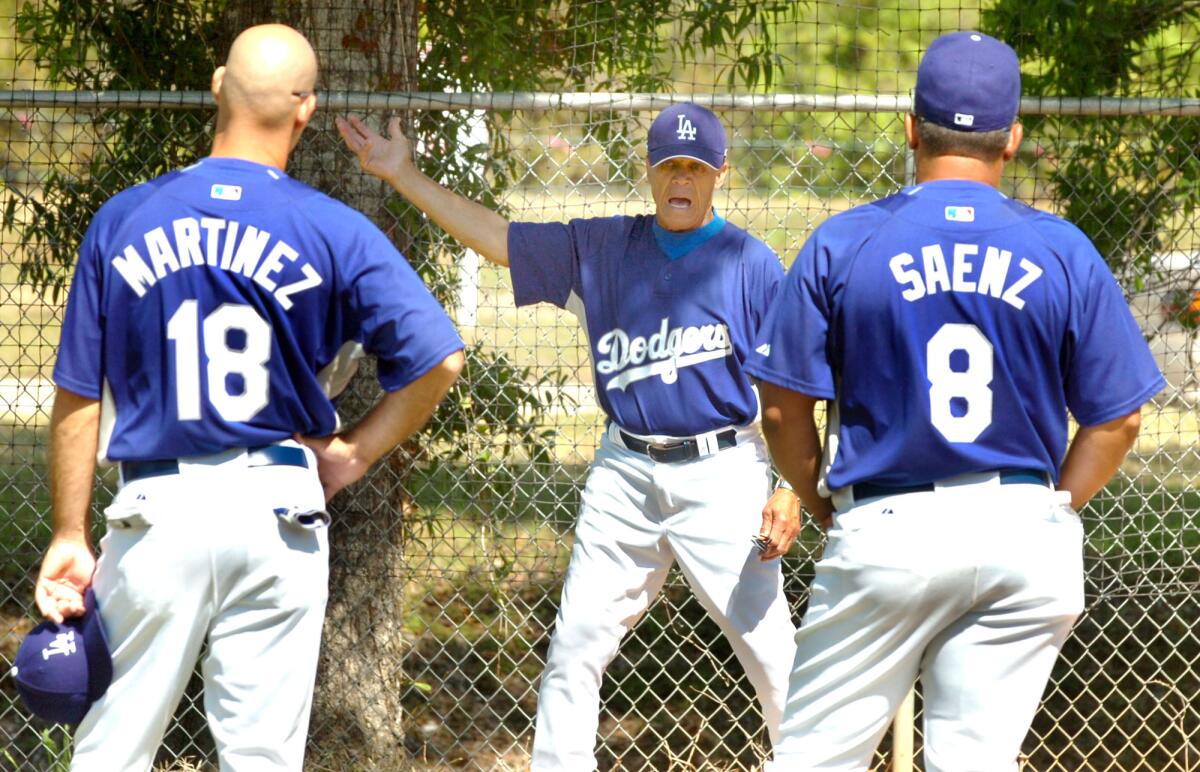
In 1980 he became baseball’s third Black manager when he was hired to lead the Seattle Mariners, but he behaved erratically and didn’t last a full season as he began spiraling into drugs and alcohol. The abuse lasted until the Dodgers helped him become clean and sober in 1989.
At one point during Wills’ lowest moments, Claire and former Dodgers pitcher Don Newcombe drove to his boarded-up house and convinced him to admit himself into a rehabilitation center under the pseudonym “Don Claire.”
“It took him more than eight years in the minor leagues to find himself as a baseball player, and in life he also needed time to find himself,” Claire said. “But once he did, he changed his world again by helping others.”
Indeed, Wills engineered his life to come full circle as he returned to the Dodgers as a special advisor, working with players on bunting and base stealing, focusing on one notable student.
From 2002 until midway through 2004, he devoted most of his time to a feisty kid named Dave Roberts, helping him hone his game in pregame workouts, in-game chats and postgame phone calls. It is no coincidence that after being traded to the Boston Red Sox in July 2004, Roberts executed what became arguably the most important stolen base in baseball history, a swipe in the playoffs against the New York Yankees that eventually led to the Red Sox‘s first World Series title in 86 years.
Maury Wills shares what would have been his thank you speech if he was at the special night honoring him at Dodger Stadium.
When Roberts spoke to reporters about Wills on Tuesday, he did so with a tear running down his cheek.
“He just loved the game of baseball, loved working and loved the relationship with players,” Roberts said. “We spent a lot of time together. He showed me how to appreciate my craft and what it is to be a big leaguer. He just loved to teach. So, I think a lot of where I get my excitement, my passion and my love for the players is from Maury.”
In the end, the pioneer baserunner doesn’t have a Hall of Fame bust, but perhaps he was given something more important. He may not have a retired jersey, but he has a living, breathing jersey.
While managing the team to annual success in the last seven years, Robert has purposely dressed in No. 30.
Yeah, it is the number once worn by Maury Wills.
More to Read
Are you a true-blue fan?
Get our Dodgers Dugout newsletter for insights, news and much more.
You may occasionally receive promotional content from the Los Angeles Times.

